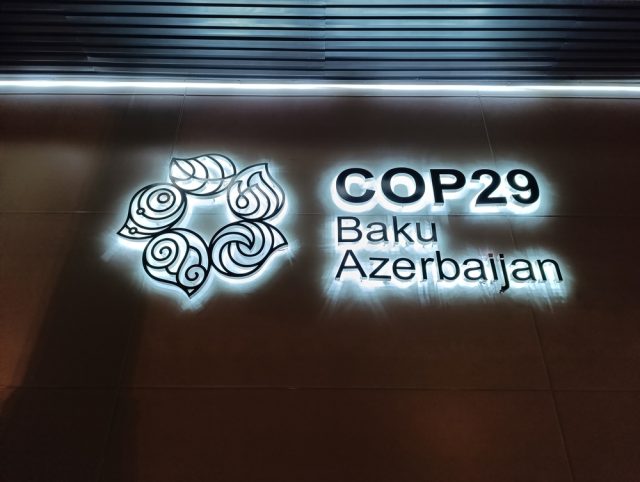
The COP29, held in Baku this month, brought much-needed attention to the food and agriculture sector during one of its sessions—a topic often overlooked in climate discussions despite its undeniable importance.
Agriculture lies at the heart of global livelihoods, with over 2.5 billion people dependent on it for survival. Many of these individuals are small-scale farmers in low- and middle-income countries, who often lack adequate support from public administrations and international institutions. Ironically, while agriculture is a significant contributor to greenhouse gas emissions, it is also one of the sectors most severely affected by climate change, with droughts, floods, and heatwaves wreaking havoc on crops and livestock.
While the inclusion of agriculture in the COP29 agenda represents a step forward, much remains to be done to address the sector’s unique challenges. A just transition in agriculture—one that ensures no group is left behind—is critical for achieving equitable solutions to climate change. This requires targeted strategies that balance the need for sustainable farming practices with the realities faced by those who depend on agriculture for their livelihoods, particularly the most vulnerable communities.
The imposition of increasingly stringent climate regulations is one of the most pressing issues suffocating farmers worldwide. These regulations often place unrealistic demands on the 2.5 billion people who rely on agriculture.
For smallholder farmers in low- and middle-income countries, adapting to these requirements is particularly burdensome. Many lack access to basic resources, modern technology, and financial support, leaving them ill-equipped to implement costly environmental measures. In addition to these constraints, limited infrastructure and access to credit exacerbate the difficulties faced by farmers already struggling to maintain their livelihoods.
The urgency of prioritising agriculture in global climate policies cannot be overstated. Between 1991 and 2021, climate disasters resulted in crop and livestock losses totalling an estimated $3.8 trillion, with low- and middle-income countries bearing the highest relative costs.
However, agriculture is not merely a victim of climate change—it is also a potential solution. Sustainable farming practices can reduce greenhouse gas emissions, enhance food security, and build resilience against future climate shocks. This makes agriculture a vital component in achieving the Paris Agreement’s goals and mitigating the worst impacts of climate change.
To address this issue effectively, a more realistic approach is needed—one that acknowledges the complexities and nuances of the primary sector. Rather than penalising nations with high environmental and phytosanitary standards, efforts should focus on supporting developing countries.
By prioritising investment in sustainable practices and infrastructure in these regions, a global improvement in agriculture could be achieved, benefiting all sectors interconnected with the food system.
Unfortunately, COP29 participants once again failed to demonstrate a genuine commitment to aligning efforts to incorporate agriculture into broader climate frameworks. Although buzzwords like “just transition,” “climate resilience,” and “support for farmers” often dominate the headlines, the reality for many farmers remains bleak.
Critics argue that high-level climate discussions continue to sideline agriculture, while placing undue pressure on those who work tirelessly to produce the food we consume.
Agriculture and livestock, which are vital to production systems worldwide, must be elevated to the forefront of these conversations. They should be recognised as fundamental pillars in climate discussions, ensuring a real and inclusive transition that does not dismantle small and medium-sized farms. These sectors are not only essential for food production but also play a key role in ecosystem restoration and mitigating the effects of climate change.
The implementation of climate solutions for agriculture must consider the sector’s specific realities and challenges. Policies should account for limited access to resources, technology, and financing while ensuring that farmers can continue producing food sustainably. Overlooking these factors risks alienating the very people whose cooperation is essential for global climate goals.
Agriculture is at a crossroads. While COP29’s discussions on the sector represent progress, they remain insufficient. Without meaningful action, the historic neglect of the primary sector will continue, leaving millions of farmers vulnerable to climate change and economic instability.
The time has come for policymakers to match their rhetoric with tangible support, ensuring that agriculture becomes a central focus in the fight against climate change. Only then can the sector fulfil its potential as both a provider of livelihoods and a key player in global sustainability efforts.



 Subscribe
Subscribe